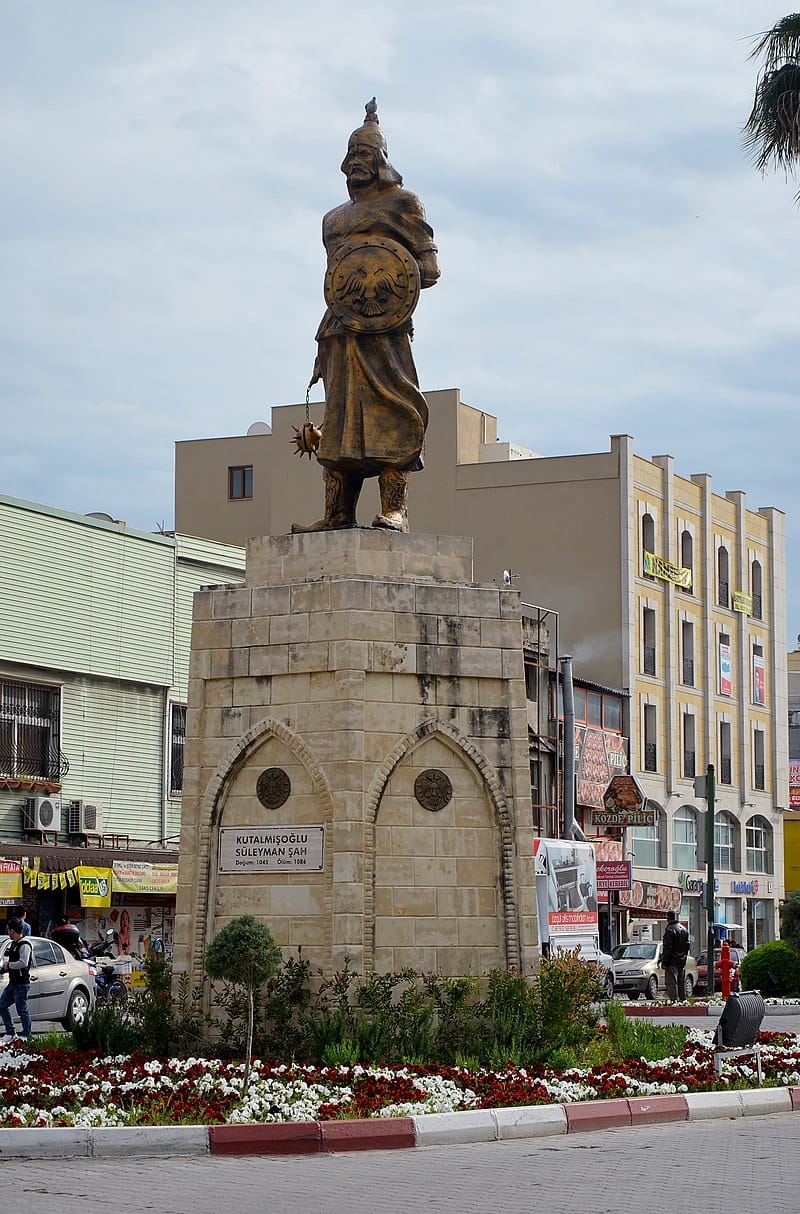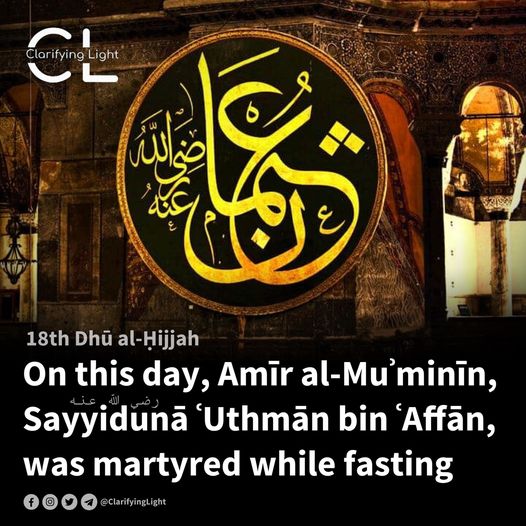Before Sayyidunā Khālid Bin Walīd, the war between the Persian Empire and the Roman Empire had lasted for 700 years, during which they fought more than 1,000 battles. Then came the ‘Sword of Allāh’ and eliminated the two empires in only 4 years! He defeated the Persians in 15 battles until their state fell, and …
Tag Archives: Bin
Khalid bin Waleed (رضي الله عنه), the Companion of the Prophet (صلى الله عليه وسلم) and the greatest Muslim general to have lived, is buried.
Khalid-bin-Waleed (رضي الله عنه), the companion of Rasulullah (ﷺ) and the greatest Muslim general to have lived is buried along with his son in a corner of this mosque in Homs He was undefeated in over hundred of battles against the numerically superior forces of the Byzantine Roman Empire, Sassanid Persian Empire, and their allies. …
Sayyidunā Khālid bin Walīd’s victories speak volumes of what he accomplished. He was undefeated in more than 100 battles…
Sayyidunā Khālid bin Walīd’s victories speak volumes of what he accomplished. He was undefeated in more than 100 battles which includes superpowers of his time such as the Roman and Persian Empire. #KnowYourHistory
KutalmIşoglu Suleiman (Old Anatolian Turkish language: Suleiman bin Qutlamish, Persian: کے کے ڪلمیش) founded an indep…
Kutalmışoglu Suleiman (Old Anatolian Turkish language: سُلَیمان بن قُتَلمِش, Persian: سلیمان بن قتلمش) founded an independent Seljuq Turkish state in Anatolia and ruled as Seljuq Sultan of Rûm from 1077 until his death in 1086.💬 Suleyman was the son of Qutalmish, who had struggled unsuccessfully against his cousin Alp Arslan for the throne of Great …
Hazrat Khalid bin Waleed…
The weight of the sword of Hazrat Khalid bin Waleed (RA) was 35 kg. This was the time when iron was used, the furnaces were of low heat. One in the right hand and one in the left hand, that is seventy kilos, maybe ninety-nine percent of the people of today could not lift a …
The home of the 3rd Caliph of Islām, Sayyidunā ʿUthmān bin ʿAffān, was under attack for 40 days by the Khawārij. He fast…
The home of the 3rd Caliph of Islām, Sayyidunā ʿUthmān bin ʿAffān, was under attack for 40 days by the Khawārij. He fasted for 39 days, and on the 40th night, he saw the Prophet ﷺ in a dream who said, “Today, you shall break the fast with us!” He woke up ecstatic like it …
Imām Aḥmad bin Ḥanbal was traveling and needed a place to stay overnight. When he approached the Masjid, the unrecognize…
Imām Aḥmad bin Ḥanbal was traveling and needed a place to stay overnight. When he approached the Masjid, the unrecognized guard denied him entry. Despite repeated attempts, the guard refused his requests. Frustrated, Imām Aḥmad decided to spend the night in the Masjid’s courtyard. Despite his old age and frailty, the guard angrily dragged him …
` Imagine Selahaddin stepping in Jerusalem, the holy city conquered by Omar Ibn Khattab and Khalid bin Walid, may Allah …
` Imagine Selahaddin stepping in Jerusalem, the holy city conquered by Omar Ibn Khattab and Khalid bin Walid, may Allah be pleased with them 🙂
The Sword of Allah, Khalid Bin Walid (RA) eliminated the two largest empires, Persian and Roman in only 4 years….
The Sword of Allah, Khalid Bin Walid (RA) eliminated the two largest empires, Persian and Roman in only 4 years. He defeated Persians in 15 battles and Romans in 9 battles. When the Persians & Romans united to fight Khalid Bin Walid in the Battle of Al-Firad with 200,000 fighters, he defeated them with only …
The helmet of Sayyidunā Khālid bin Walīd, whose victories speak volumes of what he accomplished. He was undefeated in m…
📸 The helmet of Sayyidunā Khālid bin Walīd, whose victories speak volumes of what he accomplished. He was undefeated in more than 100 battles, which included superpowers of his time, such as the Roman and Persian Empire. #KnowYourHistory
During the Caliphate of Sayyidunā ‘Umar bin ‘Abdul ‘Azīz, there was such great wealth that he declared:…
During the Caliphate of Sayyidunā ‘Umar bin ‘Abdul ‘Azīz, there was such great wealth that he declared: “Buy grain and spread it over the mountain tops so that it will not be said, ‘Birds came to the lands of the Muslims and starved.’” [Prof. Aḥmed Ağırakça, ‘Umar ibn ‘Abdul ‘Azīz] This anecdote serves as a …
During the Caliphate of Sayyidunā ‘Umar bin ‘Abdul ‘Azīz, there was such great wealth that he declared:…
During the Caliphate of Sayyidunā ‘Umar bin ‘Abdul ‘Azīz, there was such great wealth that he declared: “Buy grain and spread it over the mountain tops so that it will not be said, ‘Birds came to the lands of the Muslims and starved.’” [Prof. Aḥmed Ağırakça, ‘Umar ibn ‘Abdul ‘Azīz] This anecdote serves as a …











